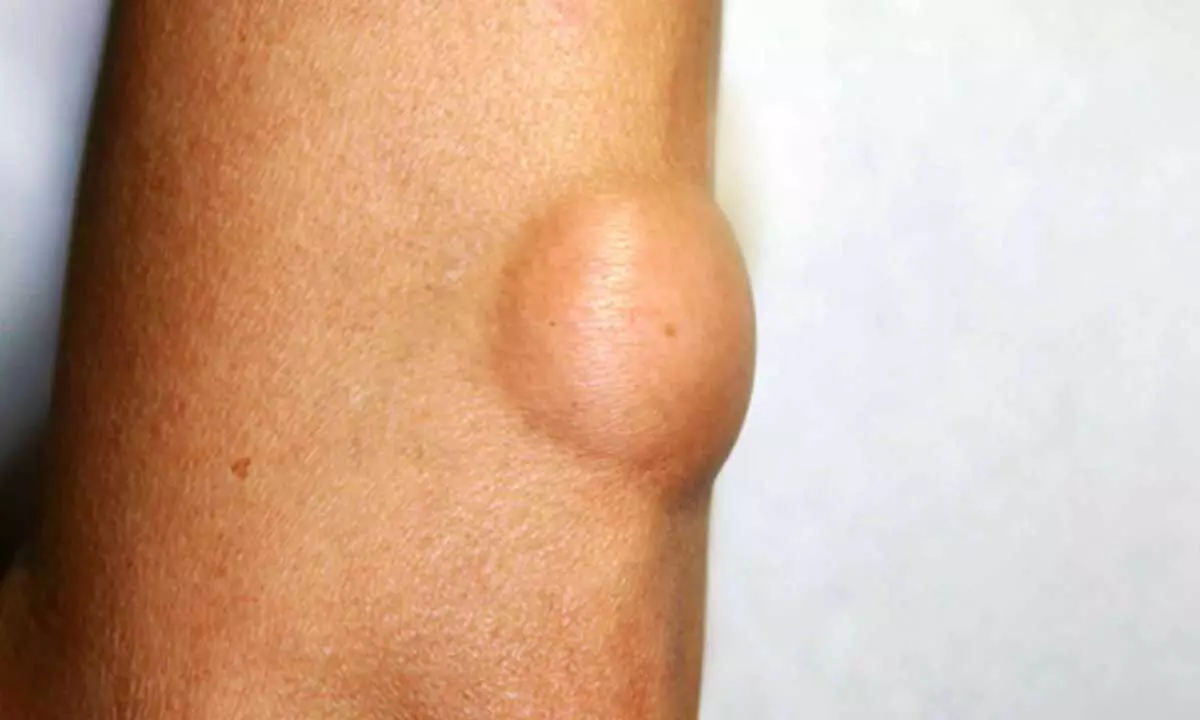Don't ignore painless lumps in body: experts
Share :

Unattended lumps in the neck, armpits, or groin that do not cause any pain, could be a sign of lymphatic cancer.
Lucknow: Unattended lumps in the neck, armpits, or groin that do not cause any pain, could be a sign of lymphatic cancer.
Medical experts form King George's Medical University (KGMU) have warned against alternative treatments.
Doctors explained that the lymphatic system is a network of vessels and nodes that helps fight infection and disease. Lymph nodes are small, bean-shaped lumps of tissue found throughout the body. When the body is fighting an infection, lymph nodes can swell. However, if the lymph nodes are swollen and painless, it could be a sign of cancer.
Former head of the haematology department at KGMU, Prof A K Tripathi, mentioned that about 90 per cent of the 20-25 patients who come to KGMU do so in advanced stages, after five to six months of alternative medicine.
He added, "Patients experience shortness of breath and unexplained weight loss by the time they see a doctor, making management more challenging."
Prof Sanjeev, a faculty member at Sanjay Gandhi Institute of Medical Sciences (SGPGIMS), explained that many patients come to him after receiving treatment for tuberculosis with no relief. He advised to seek a second opinion from a specialist if they are not improving.
He also mentioned that new treatments such as gene editing, antibody-drug conjugates (ADCs), and immune checkpoint inhibitors (ICIs) could revolutionize the way the disease is managed.
Experts said that ADCs are designed to specifically target cancer cells while sparing healthy ones, and ICIs work by removing the "brakes" that inhibit the immune system's ability to recognise and attack cancer cells.
The doctors further said that gene editing could potentially allow doctors to correct genetic abnormalities responsible for lymphoma, leading to more effective treatments and improved patient outcomes.













